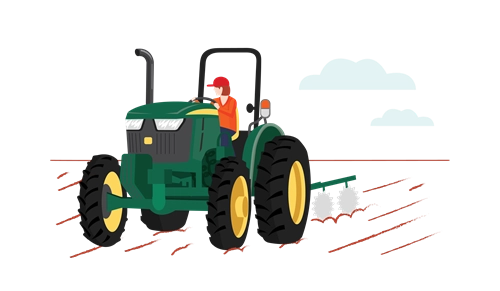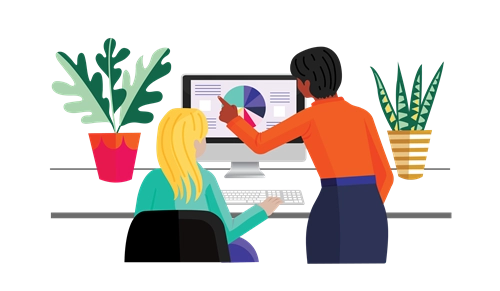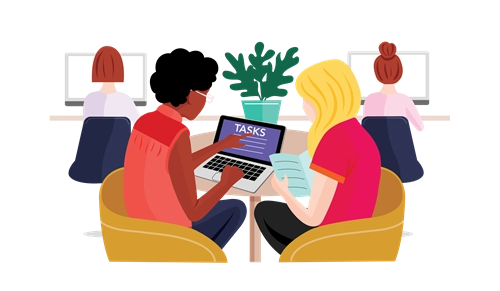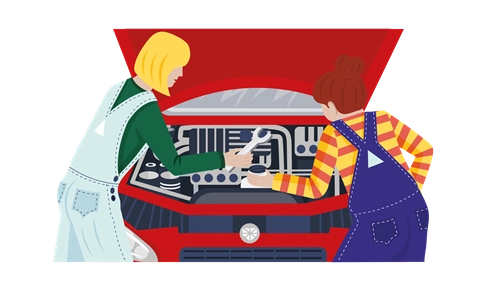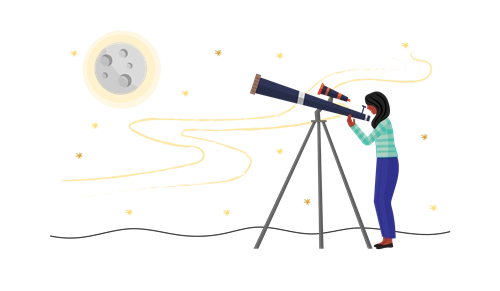Jobs of the future
The world is changing fast – and most of the jobs of the future don’t even exist yet. We asked a group of STEM experts to predict what those jobs might look like.
What will the jobs of the future look like?
No one really knows.
In fact, one popular estimate suggests that about 65 per cent of children in primary school today will end up working in careers that don’t yet exist.
One thing we can predict is that STEM skills and qualifications will be increasingly valuable in our technology-driven future … but for doing what exactly?
The rise of automation and Artificial Intelligence (AI), as well as challenges such as climate change and population growth, are just some of the factors that will impact what the jobs of the future will look like.
Taking these and their own experiences into account, we asked a group of STEM experts to give us their ideas about the careers of tomorrow.
‘Chief ethics officer’: STEM philosophers
The advent of AI raises many new ethical and philosophical questions – and almost every STEM expert and professional we asked saw this becoming an important new career niche in the future.
Say hi to Emma Gin...
Emma, a chemist turned technology consultant for global firm, Accenture, predicts that as AI evolves, we’ll need not just experts who understand the software and hardware behind it, but people whose job it is to consider legal and ethical considerations that arise, along with managers to help organise workplaces around the new technology. Any skills that highlight our human edge will be key, she says. ‘Our clients and our people want us to be more human and connected.’

Jillian Kenny, an engineer at the University of Melbourne and founder of maths app Machinam, also thinks philosophers will have an increasing role in STEM. ‘When many engineers and technologists are asking "Can we?", these are the people who will be asking "Should we?" I love the idea that the hot new C-suite title will be Chief Ethics Officer.’
Similarly, Marguerite Evans-Galea – co-founder and CEO of Women in STEMM – has dubbed a similar future role as ‘AI ethics monitor’. She foresees the role as ‘a highly qualified professional with cross-disciplinary expertise (for example science, ethics, sociology, law and technology) who is part of a large diverse team that oversees and monitors the decision-making of AI at any level to ensure it is ethical, inclusive and fair’.
If you like the idea of stepping into this fascinating niche some day, consider combining degrees like engineering and law, or a STEM degree with a postgraduate qualification in ethics, philosophy or legal studies.
‘Nanobotocist’ and ‘cybernetics designer’: Next-gen medicine
Marguerite’s other prediction for a job of the future is a ‘cross-disciplinary role combining expertise in areas such as robotics, technology, science, health and medicine to develop AI-capable therapeutic nanobots for injection and treatment of human disease and illness’. She’s dubbed this futuristic medical professional a ‘health nanobotocist’. Sounds cool!
Meet Sue Keay...
Sue Keay, research director of CSIRO's Data61 Cyber-Physical Systems program, has a similar vision. She’s called the imaginary future role ‘cybernetics designer’, which she describes as ‘someone who designs biomechatronic components for use in human implants to give people enhanced capabilities’.

To venture down this sci-fi sounding future career path, consider degrees like biomedical engineering or combine medicine with other STEM subjects and choose postgraduate courses that help you carve out your niche.
'Agroinformatics' and water worlds: environmental jobs of the future
Nicky Ringland, co-founder of Grok Learning (an online education platform for coding and technology) predicts an even bigger increase in our reliance on and use of data to inform everything we do, as well as a closer definition of the fields and roles around this.
‘Just like we now have fields of bioinformatics and astroinformatics, I'm sure we'll soon have agroinformatics: using technology to improve agricultural practices,’ she says. ‘Think: satellite imaging informing fertiliser or pesticide requirements, or improving productivity by using autonomous robots in farming.’
What does Erin think?
Erin Hughes, a surface water engineer for consultancy HARC, believes that climate change will have a big impact on the jobs of the future – for example, as we step up the need to secure our water supplies.
‘We already have technologies that can produce fresh water, such as desalination, but we do not solely rely on these technologies for our water, only our drinking water in emergency situations. I think in the future with climate change and population growth we could have new jobs which will be all about producing nearly all of our clean water requirements for things such as drinking, irrigation and environmental flows,’ she says.
Erin also predicts a lot of new jobs arising ‘around developing our cities to account for loss of land, being able to withstand extreme weather and a lot more people to house’.



